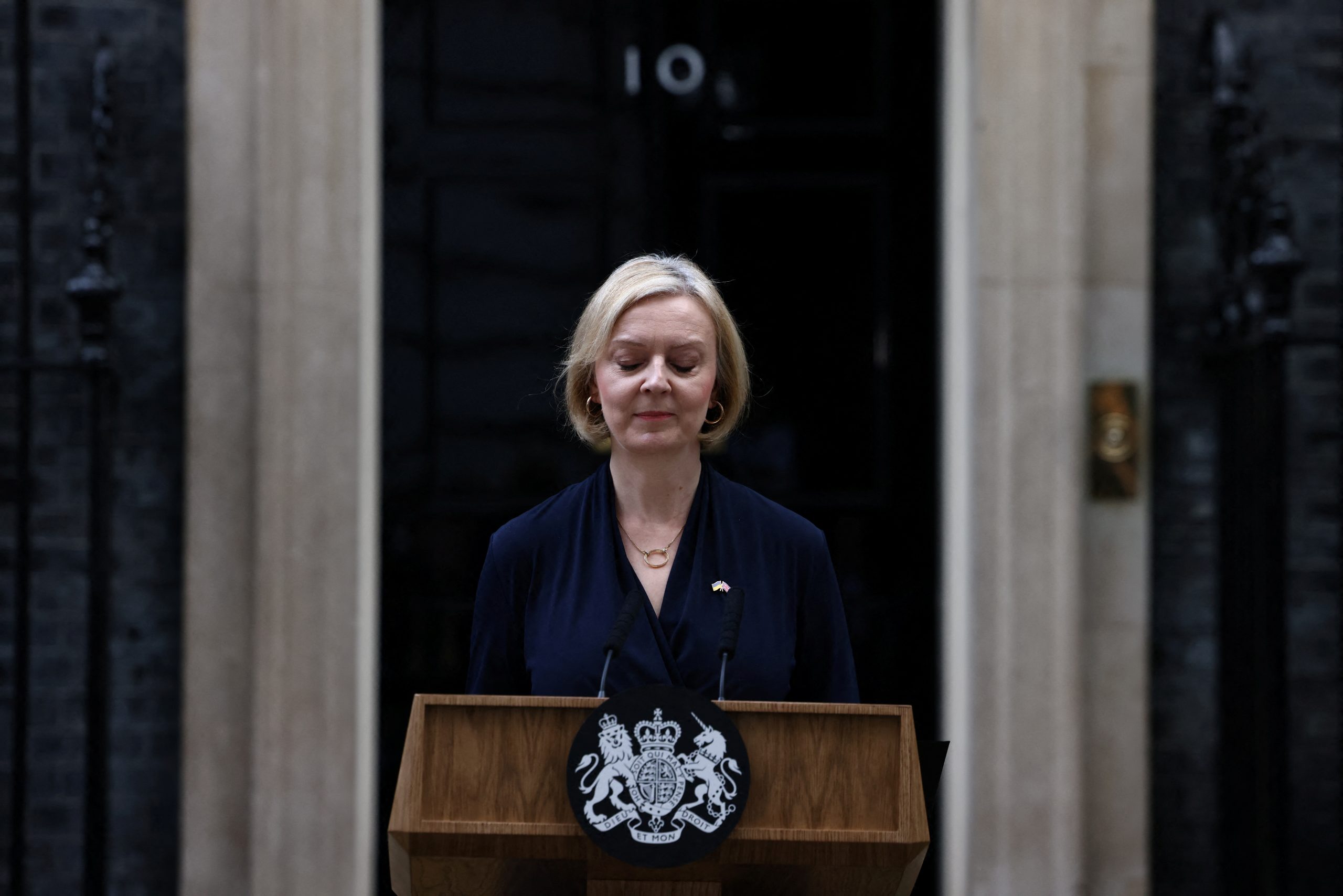
Willie R. Tubbs, FISM News
[elfsight_social_share_buttons id=”1″]
The Liz Truss era in the United Kingdom went sour almost as quickly as it began. Truss announced that she was resigning as British prime minister just six weeks after she was appointed, brought down by an economic program that sent shockwaves through financial markets last month and divided her Conservative Party.
Truss admitted that she could not deliver the promises she made when she was running for Conservative leader, having lost the faith of her party, as she announced her resignation outside of her office at Number 10 Downing Street.
Truss is now the shortest-serving prime minister in British history. A leadership election will be completed within the next week to replace her.
“I recognize though, given the situation, I cannot deliver the mandate on which I was elected by the Conservative Party. I have therefore spoken to His Majesty the King to notify him that I am resigning as leader of the Conservative Party,” she said.
Wednesday proved a microcosm of political life for Truss, who assumed the title on Sept. 5.
In a single day, Truss was jeered mercilessly in the House of Commons and bid farewell to her home secretary over what, when compared to contemporary American and British political controversies, seemed a rather tame, one might argue pedantic, rule violation.
Truss has faced intense criticism following her announcement that she would cut taxes and shrink the U.K. government, promises she later walked back after she was ridiculed by the Bank of England, United Nations’ International Monetary Fund, seemingly all liberals, as well as some conservatives.
“I have been very clear that I am sorry and that I have made mistakes,” Truss said while appearing before Parliament for her weekly Minister’s Questions.
In contemporary British politics, though, an attempt to be politically flexible has proven a recipe for disaster.
The Labour Party accused Truss of being wishy-washy on policy and the Tories have been unwilling to rally around her.
“I am a fighter and not a quitter,” Truss said in a clear attempt to ward off any calls for her speedy exit.
Truss’s statements did little to quell what had become a chorus of opposition nor did they inspire enthusiasm among Tories in Parliament. As boos cascaded from the left, Truss’s fellow conservatives were mostly quiet, some staring at the ground while others sat motionless.
When allowed to speak, Labour leader Kier Starmer referenced a book that was being written about Truss’s time in office, one due “out by Christmas.”
“Is that the release date or the title?” Starmer said.
Truss’s Wednesday also included the sudden resignation of Home Secretary Suella Braverman, who only recently was among Truss’s competitors in the race to replace Boris Johnson at 10 Downing Street.
Braverman resigned after having used her personal email to engage in parliamentary business, which, strictly speaking, is a violation of government policy, but also seems quite small when compared to the lockdown parties and other controversies that (slowly) led to Johnson’s departure.
“The business of government relies upon people accepting responsibility for their mistakes,” Braverman wrote in her resignation letter. “Pretending we haven’t made mistakes, carrying on as if everyone can’t see that we have made them, and hoping that things will magically come right is not serious politics.”
Braverman’s sudden resignation has been met with some surprise, but many observers surmise that she might be positioning herself to make another run at prime minister either in 2025 or now, since Truss has stepped down.
“I have concerns about the direction of this government,” Braverman wrote. “Not only have we broken key pledges that were promised to our voters, but I have serious concerns about this Government’s commitment to honoring manifesto commitments.”
Truss accepted Braverman’s resignation and stated, “it is important that the ministerial code is upheld, and that cabinet confidentiality is respected.”
Grant Shapps, formerly Secretary of State for Transport, will now serve as Home Secretary, a position that functions similarly to that of the U.S. Secretary of State.
Truss will remain as prime minister until her successor has been chosen, which she said will happen within the next week.
Former Prime Minister Boris Johnson is expected to stand in interest to resume the position that he resigned from just six months ago. The Times cited those surrounding Johnson, reporting that he believes he can turn the Conservative party around
Parts of this story were provided by and copyrighted by Thompson Reuters 2022.
